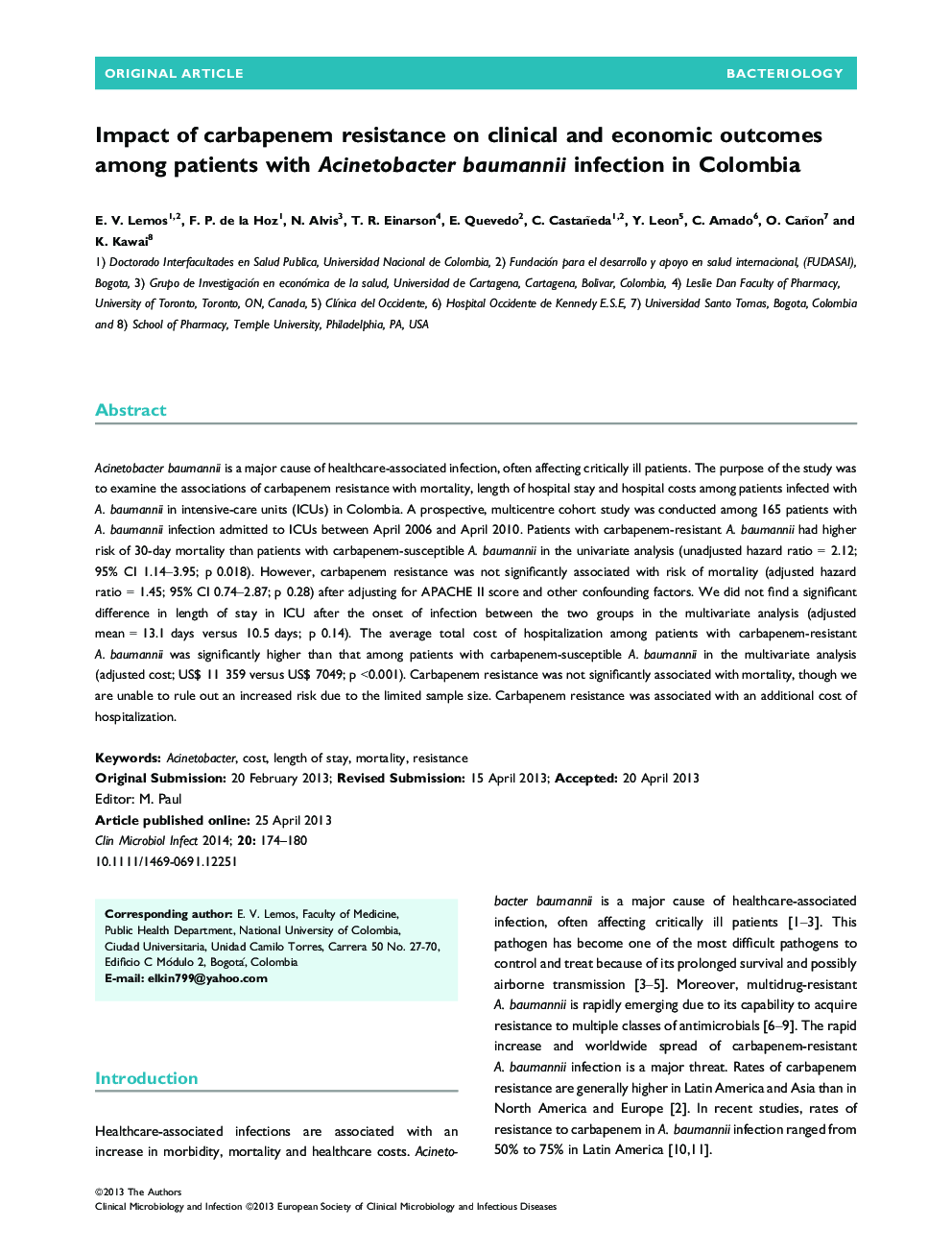| Article ID | Journal | Published Year | Pages | File Type |
|---|---|---|---|---|
| 3396576 | Clinical Microbiology and Infection | 2014 | 7 Pages |
Acinetobacter baumannii is a major cause of healthcare-associated infection, often affecting critically ill patients. The purpose of the study was to examine the associations of carbapenem resistance with mortality, length of hospital stay and hospital costs among patients infected with A. baumannii in intensive-care units (ICUs) in Colombia. A prospective, multicentre cohort study was conducted among 165 patients with A. baumannii infection admitted to ICUs between April 2006 and April 2010. Patients with carbapenem-resistant A. baumannii had higher risk of 30-day mortality than patients with carbapenem-susceptible A. baumannii in the univariate analysis (unadjusted hazard ratio = 2.12; 95% CI 1.14–3.95; p 0.018). However, carbapenem resistance was not significantly associated with risk of mortality (adjusted hazard ratio = 1.45; 95% CI 0.74–2.87; p 0.28) after adjusting for APACHE II score and other confounding factors. We did not find a significant difference in length of stay in ICU after the onset of infection between the two groups in the multivariate analysis (adjusted mean = 13.1 days versus 10.5 days; p 0.14). The average total cost of hospitalization among patients with carbapenem-resistant A. baumannii was significantly higher than that among patients with carbapenem-susceptible A. baumannii in the multivariate analysis (adjusted cost; US$ 11 359 versus US$ 7049; p <0.001). Carbapenem resistance was not significantly associated with mortality, though we are unable to rule out an increased risk due to the limited sample size. Carbapenem resistance was associated with an additional cost of hospitalization.
